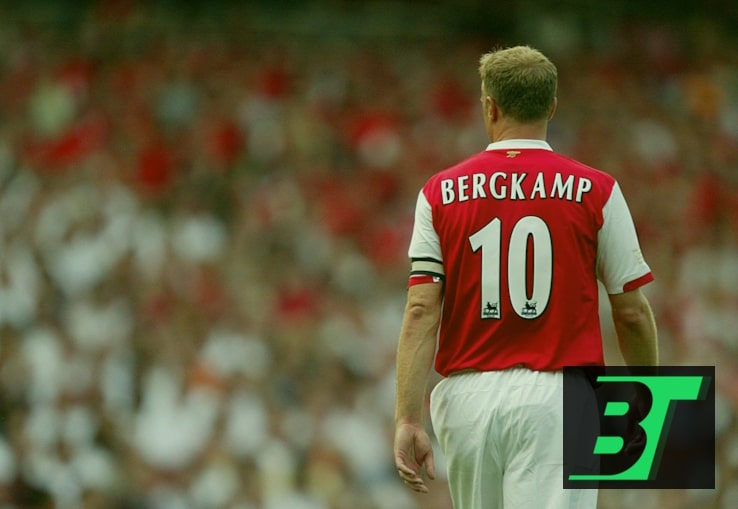
A detailed look at Dennis Bergkamp, the Dutch maestro known for his elegance, vision, and unforgettable goals.
Dennis Bergkamp was born in Amsterdam in 1969. As a boy, he grew up immersed in the Dutch philosophy of football, which emphasized technical precision, creativity, and tactical intelligence. He joined Ajax’s youth academy, where he was trained under the club’s famous system that had produced legends like Johan Cruyff. Bergkamp made his senior debut in 1986, and his talent quickly became evident. His close control, ability to glide past defenders, and intelligence in the final third made him one of the most exciting young players in Europe.
During his time at Ajax, Bergkamp developed into a prolific forward. He was the Eredivisie’s top scorer for three consecutive seasons from 1990 to 1993 and helped Ajax win the league, domestic cups, and the 1992 UEFA Cup. His goalscoring record was impressive, but even more remarkable was the artistry of his play. Every goal seemed to have an element of creativity, whether it was a clever chip, a precise finish, or a display of close control under pressure. By the early 1990s, he had established himself as one of the most gifted attackers in Europe.
In 1993, Bergkamp moved to Inter Milan, a transfer that brought him to one of the most tactical leagues in the world. Italian football in the 1990s was known for its defensive discipline, and while Bergkamp found success by winning the UEFA Cup in 1994, he struggled at times to adapt fully to Serie A. Injuries and a more conservative playing style limited his effectiveness. However, this period taught him resilience and prepared him for the next, and perhaps most defining, chapter of his career.
In 1995, Dennis Bergkamp signed with Arsenal, and it was here that his legend truly grew. Under Arsène Wenger, Bergkamp became the creative heartbeat of the team. His vision, control, and elegance transformed Arsenal’s style of play. Alongside players like Thierry Henry, Patrick Vieira, and Robert Pirès, Bergkamp helped Arsenal become one of the most exciting and successful teams in England. He won three Premier League titles and four FA Cups, contributing both goals and assists in abundance.
Bergkamp’s career is remembered not only for trophies but also for the artistry of his goals. His strike against Newcastle United in 2002, where he flicked the ball around a defender with a single touch before calmly finishing, is widely regarded as one of the Premier League’s greatest goals. His goal for the Netherlands against Argentina in the 1998 World Cup, where he controlled a long pass with exquisite skill before finishing with composure, is another masterpiece that defined his genius. These moments highlighted his unique ability to combine technique, vision, and imagination.
For the Netherlands, Bergkamp was a key figure in the 1990s. He earned over 70 caps and scored 37 goals for his country. He played in three World Cups and two European Championships, helping the Dutch reach the semifinals on multiple occasions. His style epitomized Dutch football, where intelligence and creativity were valued as much as athleticism. Bergkamp’s contributions helped maintain the Netherlands’ reputation as one of the most stylish teams in international football.
Bergkamp retired from football in 2006 after more than a decade with Arsenal. His farewell was marked by immense respect from teammates, opponents, and fans who admired his artistry and professionalism. After retiring, he returned to Ajax in coaching roles, helping to guide the next generation of players with the same philosophy that shaped his own career. Known as the “Non-Flying Dutchman” due to his fear of air travel, Bergkamp’s career was still extraordinary, proving that genius could overcome limitations.
Dennis Bergkamp is remembered not just for the trophies he won but for the beauty he brought to the game. His style was elegant, his vision unmatched, and his goals unforgettable. He demonstrated that football could be both effective and artistic, leaving a legacy that continues to inspire players and fans. Bergkamp remains one of the finest examples of a footballer who elevated the game into an art form.